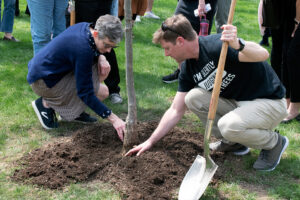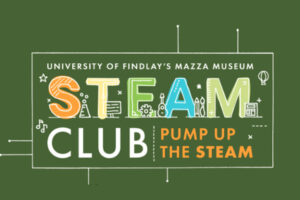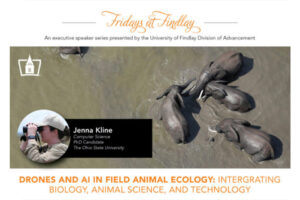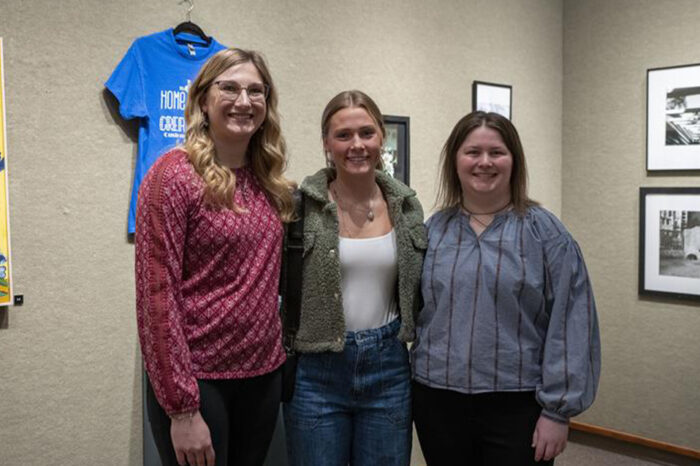Truth Be Told: Forensic Science Major’s Dreamy BCI Internship Grounded in Reality


Like many who study forensic science, senior forensic science major Tyler Tomlins chose his major after watching television shows like “CSI” and “Law & Order.” After starting his college career, he found that the shows he watched did not necessarily replicate the forensic science field. However, through his classes and current internship with the Bureau of Criminal Investigation (BCI), Tomlins found a greater interest in serving the criminal justice community.
Through the power of networking and connections, Tomlins landed a very competitive internship at BCI in Bowling Green, Ohio, where he has had the opportunity to experience every department from the chemistry lab to trace evidence, firearms and more.
“BCI receives evidence and depending on what information is needed from it, the evidence will go to the appropriate department for examination,” said Tomlins. “The goal is to look at the evidence and provide as many facts as possible to aid the investigators. You’re just trying to find the truth.”
Experiencing the labs at BCI has strengthened Tomlins’ knowledge of instrumentation and various methods used to test substances. He has also worked with evidence such as shoe prints, various types of drugs and distance determination from a firearm.
With this hands-on learning, Tomlins gained an understanding of how the industry is constantly changing. He explained the process of finding finger prints as an example.
“Everyone thinks that dust is used to find finger prints, but it’s almost obsolete,” said Tomlins. “They now use a dye to spray the object, shine a light on it, and then finger prints pop up.”
 Although he will take all of his experience at BCI with him following graduation, Tomlins’ main interests lie in the chemistry department where forensic scientists examine and identify components of substances such as marijuana, cocaine and heroin.
Although he will take all of his experience at BCI with him following graduation, Tomlins’ main interests lie in the chemistry department where forensic scientists examine and identify components of substances such as marijuana, cocaine and heroin.
Learning the most recent technology and methods as well as how to operate machinery to examine evidence has been fascinating for Tomlins, who feels that instrumentation knowledge is vital. All of this experience has only strengthened Tomlins’ knowledge and interest in forensic science.
“Because of this internship and seeing everything in action, I think I could work in any of the departments,” said Tomlins. “I don’t feel like working in this field would get repetitive. Every case is a little different from the last. I love it.”














